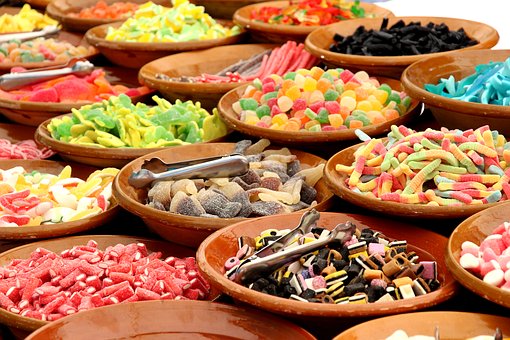Welcome to my latest newsletter…This month’s topic is all about Sugar:
I hope that you enjoy the read!
Here is some facts about sugar and the ingredients you need to look out for in the label packaging:

Today most adults consume about 22 teaspoons of added sugar a day. A university researcher discovered, that people who drunk one sugar sweetened of beverage a day, face a higher risk of non-alcoholic fatty liver disease compared to those who steer clear of beverages containing added sugar.
Sugars are carbohydrates, they provide a source of energy in our diet. The body breaks down carbohydrates into simple sugars, such as glucose, that can be readily used in the body, too much sugar in the diet can contribute to health problems, like obesity and tooth decay. Refined or processed sugar provides a quick, simple source of energy, but it doesn’t contain other nutrients, such as vitamins and minerals.
For an average 14 year old girl, a 600ml of soft drink alone will provide more than 12% of her daily energy needs. This means she would exceed the recommended energy intake from refined sugar with just 1 drink.
A food’s glycaemic index (GI) refers to how quickly the carbohydrate is broken down and absorbed into the bloodstream. High ‘GI’ foods enters the bloodstream more quickly than low ‘GI’ foods, causing a greater increase in the level of blood glucose, this is known as the body’s glycaemic response.
Recent studies have suggested a link between foods with a high GI and a number of conditions including:
Abdominal obesity
Type 2 diabetes
High Cholesterol
Hyper tension (high blood pressure)
Heath diease.
A researcher found that for every 15- calories of sugar a person consumer a day, they increase their risk of type 2 diabetes by 11%. Added sugars can fall under all sorts of different names of ingredient labels. One rule of thumb to find these hidden sugars is that any ingredient ending in “OSE” is a type of sugar. Sweeteners like cane juice, beet sugar, fruit juice, rice syrup are still types of sugar. The higher up an ingredient is on the list, the more of it is included in a product. Other names for added sugar include:
Brown Sugar
Corn Syrup
Dextrose
Fructose
Invert Sugar
Lactose
Malt Syrup
Maltrose
Molasses
Sucrose
More education is needed about the health risk of sugar intake and the impact it can have on our health.
References: better health.vic.gov.au. Dietary guidelines for All Australians, Australian National Health and Medical Research Council, Australian National Health and Medical Research Council.
OCTOBER SPECIAL: 10% OFF CRYSTAL HEALING TREATMENTS – PLEASE MENTION THIS NEWSLETTER WHEN BOOKING IN FOR THE TREATMENT.
